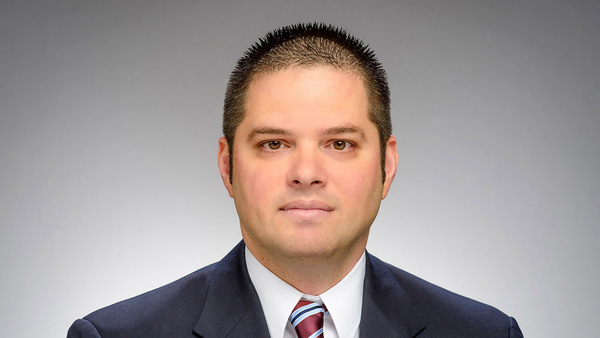
Mathematicians have attempted to solve polynomial equations since the ancient Sumerians, Babylonians and Egyptians. By the nineteenth century, they determined that a general formula for these problems does not exist, so scholars today continue to search for new strategies to solve polynomials.
Professor Jonathan Hauenstein, chair of the Department of Applied and Computational Mathematics and Statistics, develops software to solve previously intractable nonlinear polynomial equations with modern, high-performance computers. His work has earned him the designation of Fellow of the American Mathematical Society (AMS).
“It is a great honor to be selected to the 10th class of Fellows of the American Mathematical Society. I could not wait to share the wonderful news with my mentors and my family,” Hauenstein said.
Members designated as Fellows “have made outstanding contributions to the creation, exposition, advancement, communication, and utilization of mathematics,” according to the society's website. The AMS selected 45 mathematical scientists worldwide to receive this honor in 2022.
The society named Hauenstein a Fellow “for contributions to algebraic geometry, particularly work in numerical algebraic geometry and on the Bertini software package, and service to the profession.”
Hauenstein’s work helps scientists and engineers solve the polynomial equations so essential to their research with mathematical modeling techniques. As Hauenstein explained, recent applications of his software include “analyzing equilibria in chemical reactions, kinematic design in mechanical engineering, and hyperparameter optimization in machine learning.”
Hauenstein earned his PhD in mathematics at Notre Dame in 2009 and came back to work at the University in 2014.
“I returned to Notre Dame as a full-time faculty member due to this new department's vision of transcending disciplinary boundaries to impact critical problems along with the many wonderful colleagues and collaborators across campus,” Hauenstein said.
Now, Hauenstein looks forward to growing the ACMS department, increasing course offerings, and promoting faculty research productivity. He will also continue to work on his own research, for which he received the title of AMS Fellow.
Originally published by at science.nd.edu on December 01, 2021.